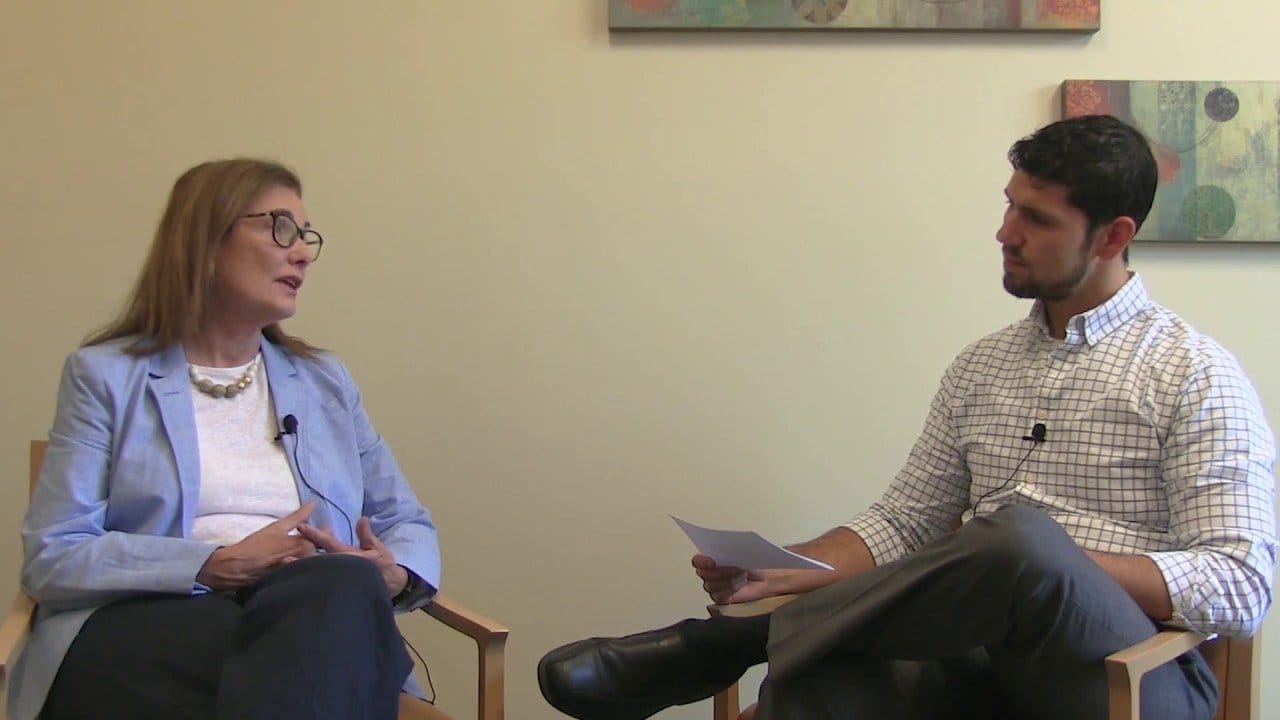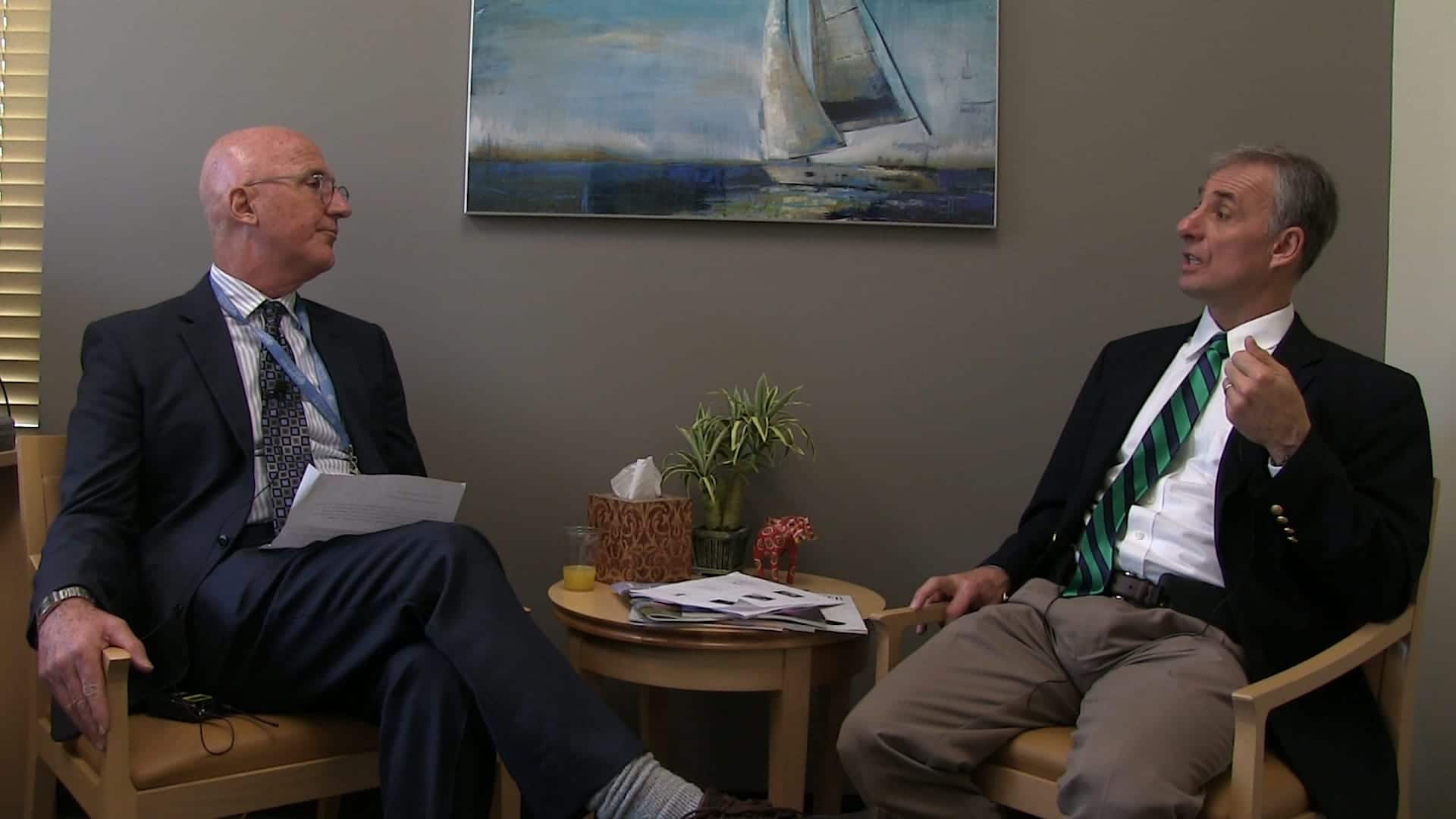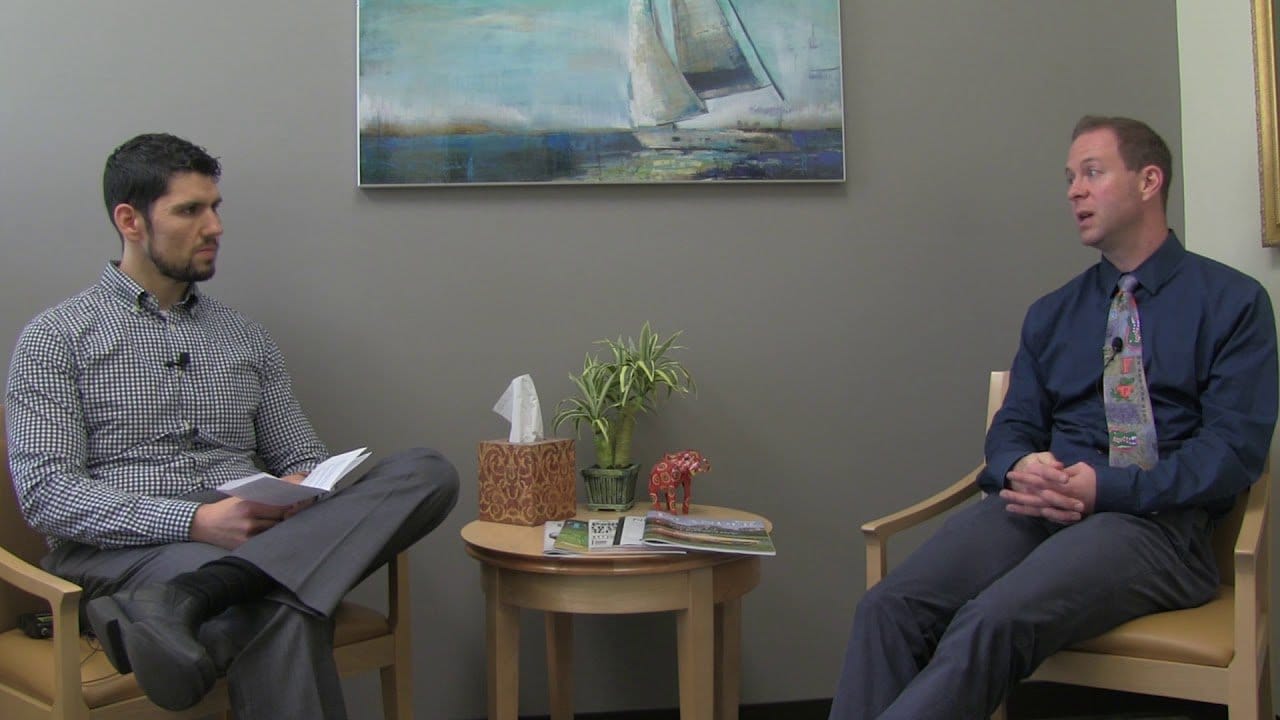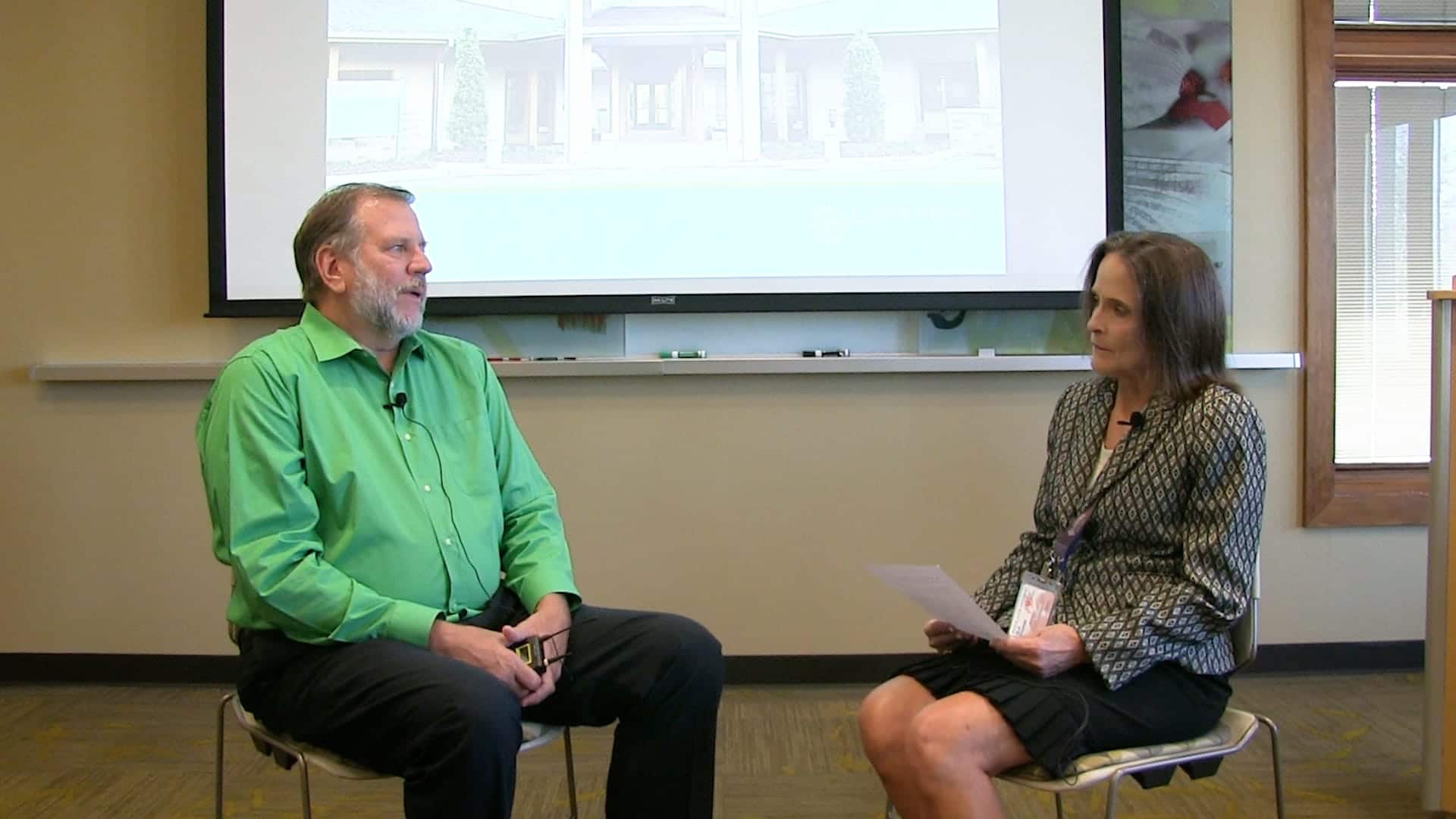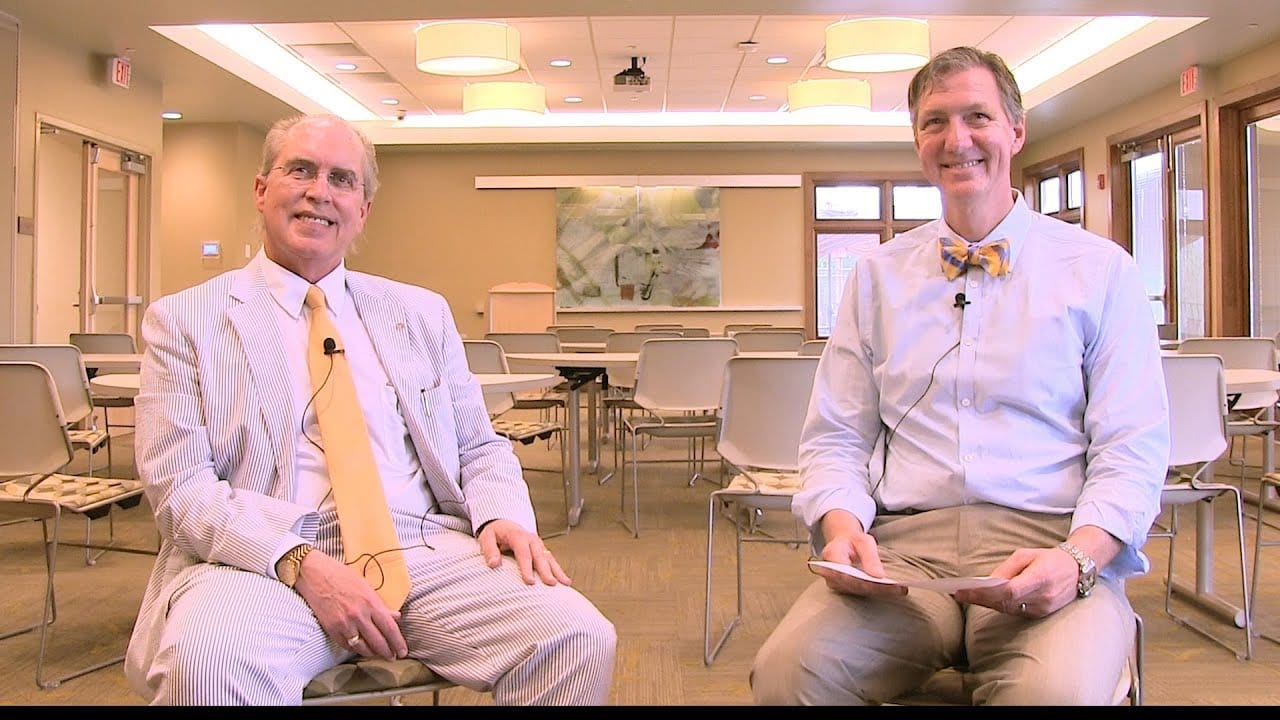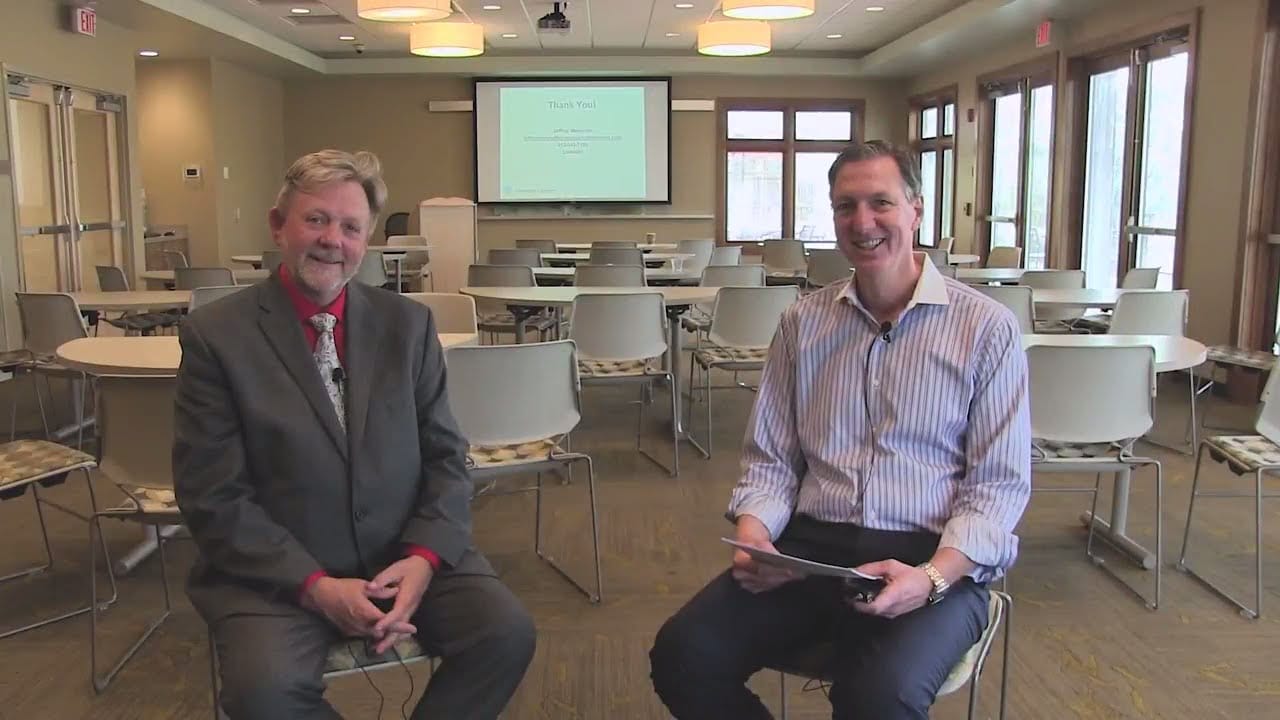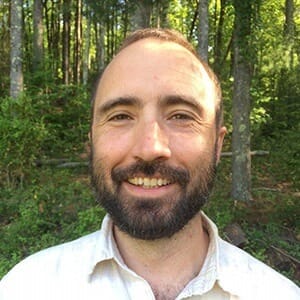

By: Lakeview Health
Dr. Hemphill: Welcome to Lakeview Health, video podcast series. I’m Dr. Philip Hemphill, the Chief Clinical Officer here at Lakeview Health. With me today is Peter Godfrey from Four Circles Recovery Center. This is in Horseshoe, North Carolina. He’s a Quality Manager, a Licensed Clinical Social Worker, and a Licensed Clinical Addiction Specialist. Thank you for joining us Peter. Peter: Thanks very much. Dr. Hemphill: So I heard a phrase you like to use to empower clients, “Do it, live it, and become it.”, can you talk about the links that this phrase has to like addiction and mental health recovery? Peter: Yeah, that is actually not a … It’s not a phrase that I picked up from my mental health or substance abuse work, but it turns out to hold some water in a lot of different ways. It began to be more and more relevant as I observed people’s personas that they develop in substance use. It became pretty obvious that when a person does something and they continue at that behavior, then it becomes something that is normal and commonplace, and then eventually they embrace that as a part of who they are, and so for substance use, you see some problematic personas that are hard to give up. Great news is that it works in the other direction too. A person can identify themselves as a baseball player, for example. How did they become a baseball player? They did baseball, right? They did baseball and they continued at it, so they’d do it, live it, become it, become a baseball player, become a person in recovery. So that’s that. It’s a really important behavioral health approach at Four Circles because we ask them to do things sometimes that don’t make sense. It’s an experiential program. You know, they’re not sure why. The behavioral health approach says, “If I do it, I may figure out why I’m doing it after.”, sometimes, and doing something important, sticking to it, you can become something, and you internalize it that way. Dr. Hemphill: And so you’re essentially having a person refashion their identity and integrating themselves into sort of accepting this identity of who they are. Peter: Yeah, the parts of the person, and we’ve learned a lot, if you’ve been in the field of substance abuse, mental health, you’ve seen it a lot where you have folks who adopt a different sort of individuality for themselves. They have parts and they have to incorporate the parts. Sometimes it’s, I’m gonna let that part of me quiet down, try to enhance this part by doing things that feed that part. Dr. Hemphill: What aspects of hiking and camping experiences do you see as being the most influential in affecting people in this process? Peter: The challenge is that they’ll face in the wilderness are, there’s a variety of challenges. It could be that this mountain is gonna be my breakthrough or it could be I need a fire and that’s my breakthrough. So what we have is, we have stressors that would be considered, well, I used to hear eustress as opposed to distress. I don’t hear that much anymore. I think that was a health class thing. Before Circles operates on this challenge by choice and healthy stress experience, and we do find clients that come to the boundaries of their coping skills and they learn new coping skills because they must, because it’s a necessity, because that’s their reality. Their position is, they’re in the backcountry and they must get to that campsite, which is over the mountain. So, that might be one. It could be a variety of things. It could be the cold or it could be another person in my group. You have that. You have that in other treatment centers. It could be a lot of things. We hope to see them come to that threshold so that they can learn new coping skills. That’s part of the wilderness experience. Dr. Hemphill: I heard you talk about both internal and external motivation and those not being mutually exclusive. What’s your understanding of how these weave together and the benefit to your client? Peter: Lots of clients in early recovery feel leveraged. It could be legal. It could be family. It could be social services, so a lot of folks in early recovery feel that pressure from outside. I work with a lot of young adults, a lot of young men, who might want to do something, but as soon as somebody tells them they have to, it changes everything. I might be motivated to exercise and I have a plan of doing 20 pushups every day, but if somebody tells me that I must, you have to do 20 pushups every day, that diminishes my likelihood of wanting to do them. So we fight that battle. We remind folks, like okay, yeah you are leveraged into this. If you set that aside, don’t you have some reasons for wanting to do it for yourself. We have to work that and we do a lot of motivational interviewing on that. A lot of our clients are that young adult at age range, their family does have them securely leveraged into treatment, and they have to come to grips with that. But they can, and they see that the external motivation becomes less meaningful while they’re in our care, you know, in our stay. Some of them, they hate being at Four Circles at the beginning and it’s because they’re leveraged into it. Then halfway through, they’re like, I get it. By the time it’s over, then I’m sad that I have to leave. Dr. Hemphill: You mentioned families and I was wondering about your integration of the family or the support systems and how you use experiential therapy with them as well? Peter: We have a three-day family workshop, experiential family workshop. It’s once a month and it’s open to any family members. Most of our clients are on the young adult side, so we se mostly parents, middle-aged sort of mid adult years, but that’s not always the case. We also see spouses or sometimes even step-siblings. We invite them and it’s about 50, maybe 50% education 50% experiential, and we do those metaphorical activities and, well it won’t be on this interview, but earlier today we just did two of those metaphorical activities. But at the family workshop, we do the challenge course and we do the very important work around codependency. Family members, some have gotten to the point where it’s really obvious what they have to do. They have to draw really firm boundaries. That’s the majority, but those boundaries are not secure. So we bring the family in, and we do activities and education and we even do a transition ceremony for the family members. We do a little bit of a solo experience, where they get to confront for themselves their mixed feelings about the addiction their identified client. They face a lot of fear about what will happen if they don’t support this person, so they have a lot of mixed feelings and we address it. We address it in a way that hopefully sticks because we provoke some of those feelings in the family workshop as they learn to cope with them, hopefully. Then they leave with a plan. They leave with an intention that they set for themselves. Dr. Hemphill: Well Peter, I really appreciate you spending some time with us here today. I know being inside like this is a little different for you. You probably, I see you’re ready to go and get back to the wilderness here. But for those of you watching, you wanna learn more about Four Circle Recovery. You can go to fourcirclerecovery.com, and again, thank you again for joining us here in Jacksonville, Florida. We really appreciate your time and your expertise. Peter: Thank you very much for having me. I enjoyed it a lot. Dr. Hemphill: For those of you interested in learning more about Lakeview, you can visit us at lakeviewhealth.multiplica.dev or reach us 24/7 at 866-887-0142. That’s 866-887-0142.
